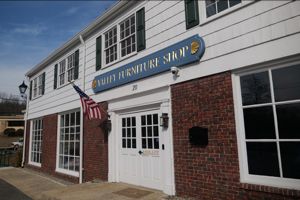Explore a Tale of the Most Fascinating, Obscure Man in History You Might Never Have Heard About
About Blog Post
Jan 17, 2023
by SCLSNJ
“I have always been interested in people's struggles, and that is what I write about,” explained author, professor, and researcher Marcus Rediker.
The Somerset County Library System of New Jersey (SCLSNJ) will be hosting an in-depth, virtual author discussion with Rediker on Monday, February 6 from 7 - 8 p.m. to discuss the life of a fascinating, obscure historical figure - Benjamin Lay. This program requires registration: https://sclsnj.libnet.info/event/6765075.
“I thought that he [Lay] would be a really interesting person for our times because not only did he oppose slavery, he also advocated gender equality, class equality, and he had an environmental consciousness,” said Rediker. “He said, for example, ‘beware of rich men who poisoned the earth for gain’- gain meaning profits. So, you've got this man who combines race, gender, class, and environmental consciousness in the 1730s.”
Rediker presents a well-researched, inspiring account of Lay’s life in his book, "The Fearless Benjamin Lay: The Quaker Dwarf Who Became the First Revolutionary Abolitionist."
Continued Rediker, “One of my purposes for Benjamin Lay is that I want to make his story available in as many different cultural forms as I can. So, not only do we have the scholarly biography, we have the graphic novel.”
Rediker is a prolific writer who has written a dozen books on historical events including slavery, rebellion, outlaws, and more, including: “The Slave Ship: A Human History,” “The Amistad Rebellion: An Atlantic Odyssey of Slavery and Freedom,” “Outlaws of the Atlantic: Sailors, Pirates, and Motley Crews in the Age of Sail,” more.
“I grew up in the South - born in Kentucky, grew up in Tennessee and Virginia,” said Rediker “And, I was profoundly influenced growing up by the Civil Rights and Black Power movements."
Continued Rediker, “These movements actually had the greatest impact on the development of the kind of history that I do, which is called history from below, or people's history - sometimes called radical history. It's the history of the ordinary working people who built the world we live in, but who are frequently left out of the history books. As a note, I have to say I love libraries and I love librarians. The work of historians would not be possible without them.”
If you are interested in becoming a historical researcher and writer like Rediker, he recommends these helpful tips:
- Tip #1: As I write a book I bury myself in a brilliant work of fiction about the same time period, to fill my mind with its literary power. Example: as I wrote “The Fearless Benjamin Lay” I read Barry Unsworth's “Sacred Hunger” (for the fifth or sixth time).
- Tip #2: In my view, the essential unit of good writing is the paragraph. If you're stuck, spinning your wheels, write one strong paragraph, just one, about whatever topic you are on. In my experience, this breaks the logjam and allows thoughts to flow onto the page.
- Tip #3: When I know what I want to write about the following morning, I reread my primary sources closely the night before. This makes it easier to get started the next day, and sometimes the unconscious mind does a stunning job of sorting things out.
- Tip #4: Find a fragment of a poem from the time period you are studying, one that embodies a theme or two of your investigation, and write a paragraph, a section, or a chapter around it. Make that poem sing its historical significance.
- Tip #5: Embodiment. Anytime you can make an idea or a concept come alive through a person or an event, do it. Making your reader see your argument through vivid, concrete human thought and action is much more powerful, convincing, and memorable than a dry abstraction.
- Tip #6: Economy of expression. Strunk and White said, “Omit needless words.” Blaise Pascal wrote to a correspondent: “I'm sorry I wrote you such a long letter; I didn't have time to write a short one.” Use 3 words rather than 4; be ruthless. Shorter = more powerful.
- Tip #7: Go on reading your sources until you hear voices, then write a deeply human story about your historical subjects. Readers want to learn about real people, making real choices, in real circumstances. Make your actors complex and multi-dimensional.
- Tip #8: Three things scholars need to do to write for a broader audience. First, you have to want to. (Most do not.) Second, you need to read gifted prose stylists and learn from them. Third, you must work hard at the art and craft of writing. It’s all pretty simple.








